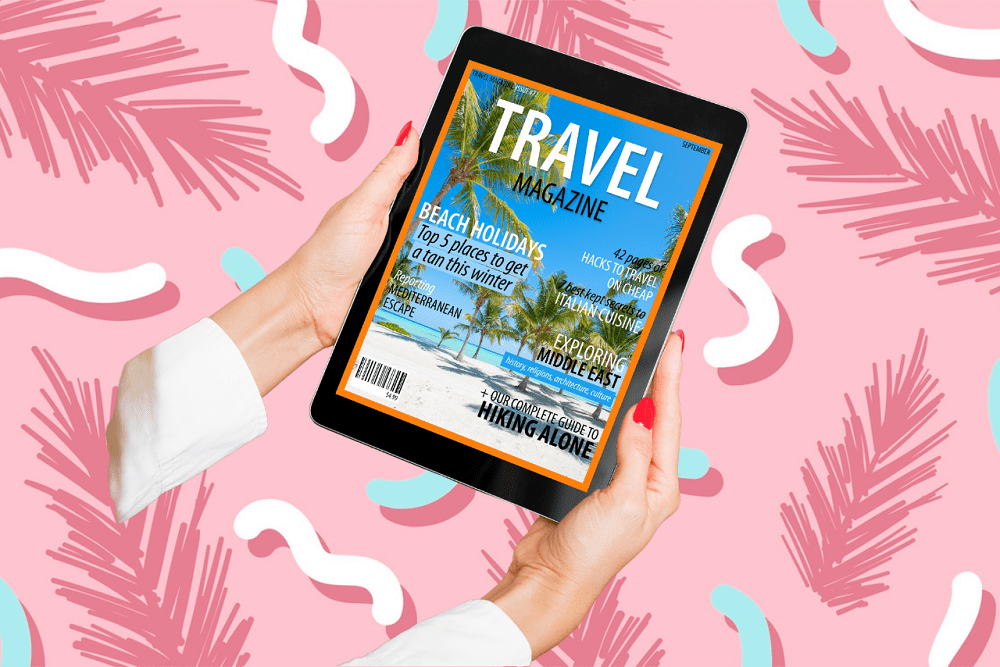Are you a previously intrepid itinerant who’s tired of laying low and is looking for a new adventure of a different kind? If so, you’ve most certainly come to the right place. Should you be keen to combine your love of travel with that often unholy pursuit of making enough money to live, then here’s how to start a new business in the travel sector in 2022.
FIRSTLY, BIDE YOUR TIME
Let’s put things as plainly as possible; a business in the travel sector in 2022 is going to look unreservedly different to one from just a couple of years ago.
This isn’t only because of the obvious. Although the global pandemic has certainly affected the travel industry wholeheartedly, and continues to do so, there is also the even more pressing concern of the climate crisis and global heating.
When you combine these factors, it’s clear that for the foreseeable future, people are going to be travelling much less frequently and with a certain amount of trepidation at first. When you’re in the conceptual stage of imagining your new travel business, it’s essential that you take this sense of uncertainty into account.
Operate with a mindset based in pre-pandemic times and get left behind. Instead, it might well be worth biding your time, analysing the market with a keen eye on how it’s changing, and wait to see how the very idea of travel shapeshifts as global vaccinations increase and *fingers crossed* the threat from COVID-19 decreases in tandem.

SECONDLY, ACKNOWLEDGE THE CHANGING NEEDS OF THE SECTOR
Due to the pandemic and increased concerns over global heating, two new major travel trends have emerged in the sector; the staycation and the workcation. It would be folly to ignore the changing needs of the travel industry, and adaptability in the coming months is key.
When you’re starting your new business in the travel sector, be a voracious consumer of industry news, gossip, updates and trends. The best way to do this is by keeping a keen eye on the news – both business and global – as well as subscribing to leading travel industry magazines and newsletters. Lonely Planet Magazine, Wanderlust, Conde Nast Traveler, Travel + Leisure and National Geographic are a few of our favourites.
For newsletters that concern the business side of the industry, Travel Retail Business and The Beat are both incredibly useful.
Read: Smart, kinder, safer: 9 travel trends for future travel
CREATE A BUSINESS PLAN
If you want to lay a solid foundation for your travel business during the initial stages of its inception, creating a detailed business plan is crucial. This will provide you with the strategy and platform that you need to grow, develop, and scale your organisation going forward.
You’ll find it much easier to determine your overarching company vision with your business plan at hand. Amongst a great deal of many other benefits, this will help you tailor your travel service range around your target market’s specific wants, needs and demands.
For official government advice on how to write a business plan for a UK-based company, click here.
BUILD YOUR BRAND
Do you want to reach, engage and retain the most diverse range of travellers possible? If so, building a strong brand image is of the utmost importance, particularly in establishing your company in the minds of consumers when it’s still in its infancy.
This will help you to differentiate your agency from its competitors and, ultimately, it will aid you in your attempt to forge an authoritative and trustworthy reputation for yourself in the travel sector.
When attempting to build a robust brand image for your business, try putting the following advice into practice:
1. Identify your core competencies, ethics, and values
2. Complete a S.W.O.T (Strengths, Weaknesses, Opportunities, Threats) analysis of your company
3. Determine your marketing mission
4. Experiment with your promotional tone of voice
5. Offer a peek behind the curtain by injecting your brand with some personality
A SAFETY FIRST IMAGE
The mindset of travellers and consumers has potentially been changed forever by COVID. Recklessness and spontaneity is out, and a cautious, safety first approach is in.
A responsible, responsive new travel business has to respond with a matching mindset. You’re going to need to reassure potential customers that your agency is equipped and educated concerning safe travel, and this image needs to be apparent from the first moment of engagement.
There are a number of things that you can do to showcase the fact that your travel agency is COVID-secure, one of which is for you and your workforce to wear personal protective equipment at all times. This will show that you are committed to keeping the spread of the coronavirus at bay, no matter how inconvenient or uncomfortable it may be for you to do so.
Wearing masks doesn’t have to be all doom and gloom. When you invest in a batch of personalised PPE products, you will have the capacity to showcase your safety measures and promote your brand image at the same time. This is the perfect way to enhance your reputation as a reputable provider of travel services.
Having hand sanitisers at the door of any physical premises you might have and providing a clear COVID-secure policy on your website are just two more ways you can make your safety first image stand out.
And if you’re considering more advice on new normal travel, check out this handy guide 6 things you’ll likely need to travel abroad in 2021.





